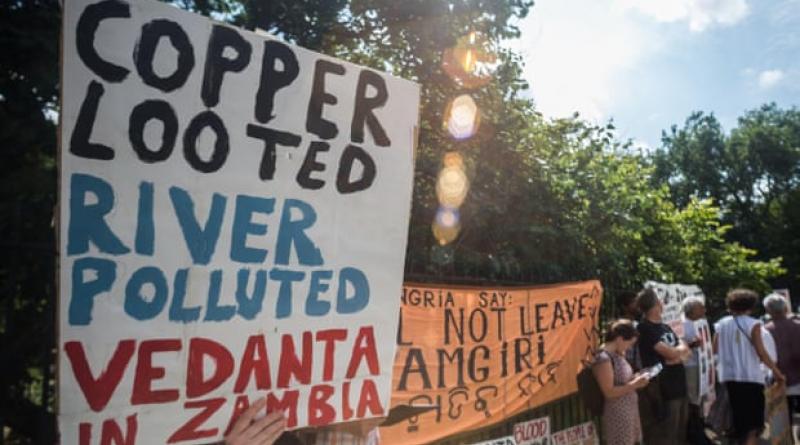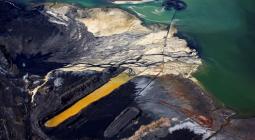Zambians can pursue mining pollution claim in English courts.

Villagers say mine run by subsidiary of UK-based firm has caused illness and deaths
Two thousand Zambian villagers who say their lives have been ruined by toxic runoff from the world’s second-largest opencast mine have won the right to pursue a claim through the English courts.
In a landmark judgment, the supreme court ruled that the mining conglomerate Vedanta Resources, which is based in London, and its Zambian subsidiary Konkola Copper Mines (KCM) can be held to account by English judges, despite the companies’ arguments that they should defend themselves in Zambia.
The decision opens the doors to a range of other cases to be brought against parent companies based in the UK for the actions of their subsidiaries overseas. Oliver Holland, associate solicitor at Leigh Day, who represented the Zambians, said: “I can see companies around London looking at their policies and thinking: what’s going to happen now?”
Cases against Royal Dutch Shell, Unilever and BHP Billiton over allegations of polluting communities in developing countries have been awaiting a decision in the Vedanta case before they can proceed.
The case was brought by 1,826 residents of the Chingola region, in Zambia’s Copperbelt province, who say that effluent from the Nchanga opencast mine has polluted their water supplies.
A vast operation covering nearly 30 sq km, the copper mine and its processing plant lie close to the Kafue River and its tributaries. Local farmers and fisherman claim to have suffered continual pollution since Vedanta bought KCM in 2004, including an incident in 2006 which they say turned the Kafue bright blue with copper sulphate and acid, and poisoned water sources for 40,000 people.
Chemicals believed to be draining into the local water supply include heavy metals such as lead and cadmium, which the claimants say have led to them suffering chronic illnesses and deaths.
“The villagers live close to the river, which we say that the effluent goes into, so it’s polluting their water sources and farmland,” Holland said. “They are saying they have to drink polluted water because there is no other water source.”
James Nyasulu from Chingola, a long term campaigner in the case, said the decision will finally enable thousands of victims of pollution to seek justice. “Their livelihoods, land and health have been irreparably damaged by pollution which has rendered the River Kafue completely polluted and unable to support aquatic life.”
The claimants first issued their case in the hight court in London in 2015, claiming negligence and breach of statutory duty over the release of effluent, but before it could proceed Vedanta challenged the jurisdiction of the English courts. The supreme court’s decision on Wednesday confirmed rulings in both the high court and the court of appeal.
A key point in the case were claims in company literature published by Vedanta – a £10bn company – that it took responsibility for environmental and sustainability standards across the group. It had agreed to submit to action in the Zambian courts alongside KCM, but the supreme court justices agreed with the claimants’ argument that there was a risk they may not have access to justice in Zambia, and so allowed the case against both companies to be heard in England.
“Had it not been for the access to justice problem, this court would therefore have refused the claimants permission to serve these English proceedings out of the jurisdiction upon KCM in Zambia,” Lord Briggs told the court. “As it is, however, the non-availability of access to justice in Zambia means that the proceedings against both defendants must continue in England.”
A spokesperson for Vedanta and KCM said the judgment was a procedural one relating to the jurisdiction of the case. “It is not a judgment on the merits of the claims,” the spokesperson said. “Vedanta and KCM will defend themselves against any such claims at the appropriate time.”
The claim against Vedanta and KCM can now proceed in the high court.
10 April 2019





